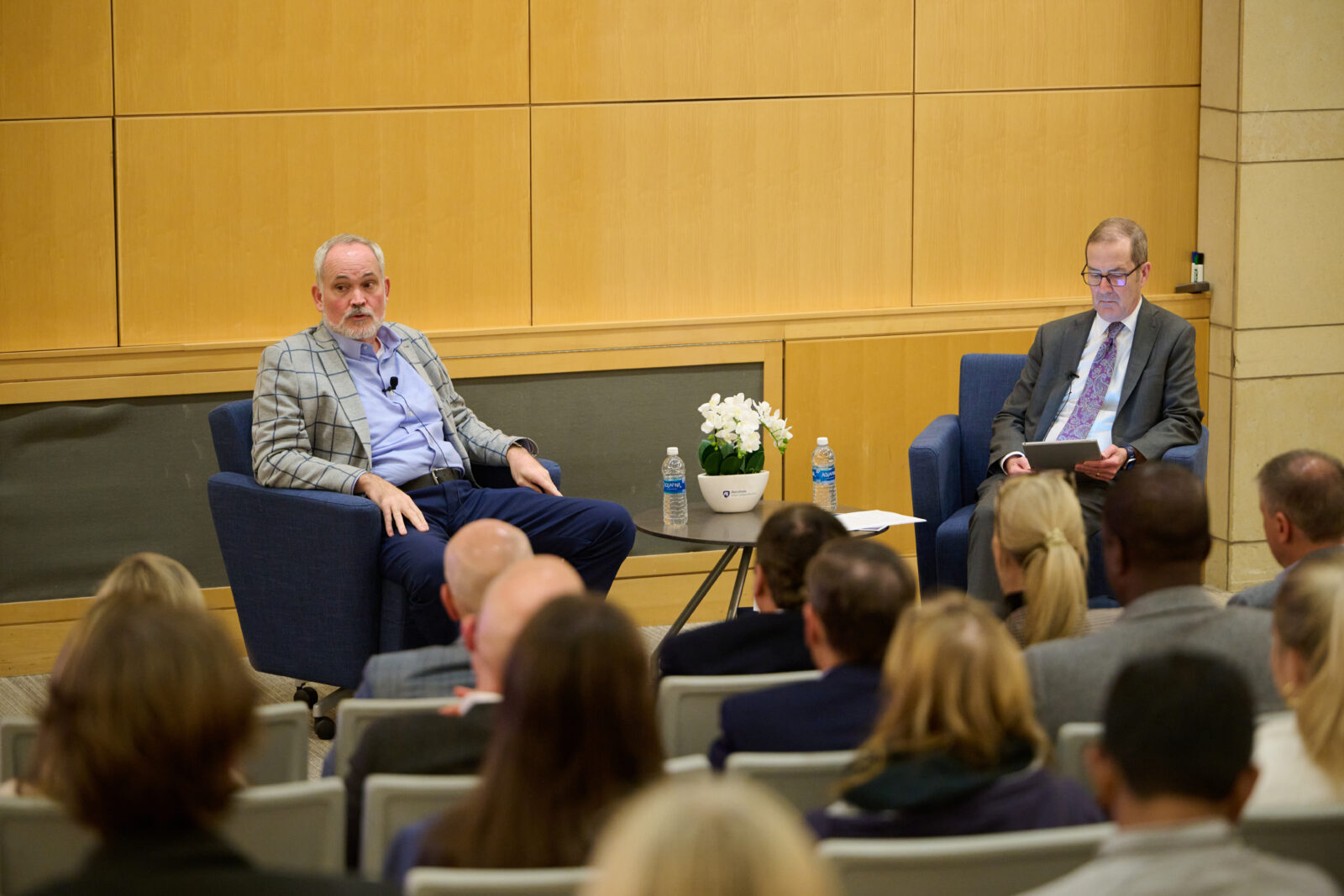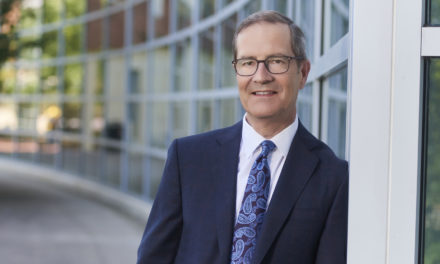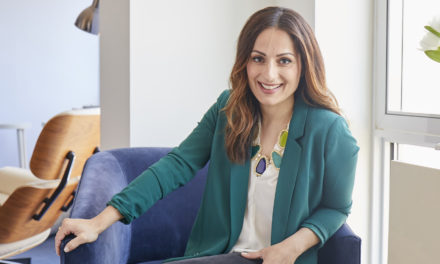(Excerpted from the moderated discussion between Dean Charles H. Whiteman and John Geller during Executive Insights, Smeal’s signature speaker series)
WHITEMAN: Tell us about your career trajectory.
GELLER: I was an accounting major. I actually wanted to be a finance major. My dad was a CPA. He was encouraging me to be an accounting major. I was thinking of going Wall Street, maybe be an investment banker, but black Friday happened in October of 1987. I started with Arthur Andersen right out of school in 1989 as a staff auditor. Even with that, I wanted to work in the financial sector. I was actually hired into Arthur Andersen’s financial services practice, meaning I would work on banks and investment companies, because that’s where I felt I had interest.

As an employee of Arthur Andersen earlier in your career, you experienced, to some degree, one of the most recognized corporate scandals in history, known by many as the Enron scandal. Can you tell us about that experience and how it shaped your perspective as a CEO?
It was interesting from our DC office and the culture that I saw. The Andersen line was think straight, talk straight. It was about doing the right thing.
I think what ended up happening is you had pockets, in this case down in our Houston office, without the right leadership, because we were a global firm, but we were led by city leaders and regional leaders.
So, one thing that became apparent to me was you have to drive that across your organization internally — making sure your culture is strong to do the right things. It’s something you’ve got to constantly message around. And I think it’s something that you have to continue to train, lead by example.
So what are the most important steps that these folks can take now to set them on a pathway to becoming a CEO?
I’d put it into a couple of different things, especially early on. Be open for different experiences — things that you might think you want to do, but try other things. You’ve got to be able to really recognize what you know and what you don’t know.
One of the many great things I learned is to be humble. I think anybody, once they think they’re the smartest person in the room, it’s almost like you stop learning. Where’s that curiosity? Where’s that desire to learn other things?
At its core, having accounting classes is critical to move up into leadership. As the CEO, I’m accountable for a lot of different things now to all of our stakeholders: how we make money, growing our profits, understanding all of that. The accounting, the tax, is very critical for anybody who is thinking about being the CEO long-term.
It is really about making sure you’re curious. I don’t know a lot of public company CEOs that spent time as the head of internal audit. But it brought to me some different experiences.
I still remember one of my first annual interviews with a partner at Arthur Andersen. He goes, ‘Geller, you’re never going to be the smartest guy in the room. The question is, can you get a seat at the table?’
I was two years out of college at the time. I never had thought of myself as the smartest guy in the room by any means, but I didn’t get it at the time. I was too young to really understand what he was saying. Now I get it.
The smartest guy, I don’t think, becomes CEO or even a CFO. There’s too many other softer skills, experiences, and things that you don’t have to be the smartest guy in the room. Can you develop all of the skills that you need as a leader and get the experiences that you need?
How has your idea of what makes a successful leader changed over the course of your career?
I think I’ve always aspired to be a leader. I’m not sure I always, early on in my career, necessarily thought about that in terms of being a leader.
In my head, I’m still the same guy that graduated from Penn State. I walk through the office. I try to be approachable. I try to be funny. I’m the same as you. I put my pants on the same way you do every morning.
Internally, I’m the same guy I’ve always been. But there’s an expectation as a leader. For me, it is being there, being approachable for your people. I’ve been doing this since I started as CEO, listening and learning as I go.
Can you share your perspective on continuous learning and the role it plays in leadership development?
Once I started working, I realized the importance of that continual learning. I thought maybe I’d go back and get an MBA. I never did that. But there’s so many ways to learn outside of that, whether those are executive leadership courses or by reading and understanding other businesses. One of the best ideas is understanding what other businesses do, not just in your industry, but outside your industry, and how can you correlate some of that in terms of things that maybe you want to do as a leader. There are plenty of ways to continue to learn.
Can I get you to talk about something that didn’t go so well?
There’s a long list I try to forget. Part of being a leader, I think, a lot of times is you’ve got to learn from your mistakes. But you’ve got to move forward. You have to be an optimist because, on some level, there’s too much negativity in the world. So, you have to balance that.
I don’t know if this is one of our biggest mistakes, but afterCOVID as a travel company, we had to make some hard decisions. It was really more about making sure the company lasted because really, everybody remembers the world shut down in March of 2020. We had 20,000-plus associates around the world. We furloughed almost 2/3 of those just because resorts were closed. We didn’t know how long this was going to last. And then the remaining associates were on reduced workweeks. We were managing for cash flow.
With hindsight we probably could have absorbed a bigger cash hit, kept people engaged and not lost as many people. And we’d been a lot better situated on the recovery.




